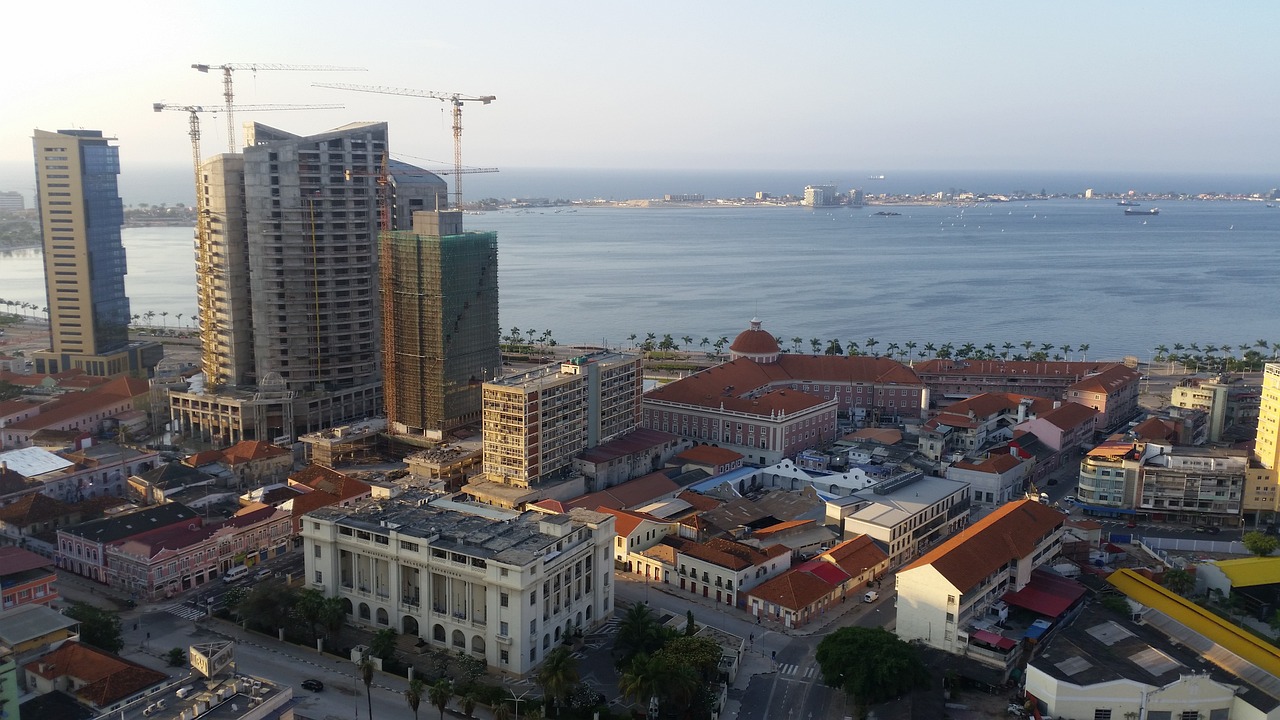Africa
Angolan Banking Profits Were Down 13.6% in 2022
There was an increase of 4.2 percentage points in the solvency ratio compared to 2022, equivalent to 28.4%, “thus remaining above the minimum regulatory value with a safety margin, which demonstrates the resilience of the sector.” The study also reveals a “very solid growth” of other indicators, namely the use of automatic payment terminals (POS).

The data on the Angolan banking profits are contained in the study Banca em Análise 2022, by the consultancy Deloitte, presented, on July 19th, in Luanda. The report contains exhaustive information on the 23 banks that were active in Angola last year, with the exception of Banco Económico (ex-BESA), due to the unavailability of financial statements.
The decrease in the sector’s net income was mitigated by the significant increase in foreign exchange results, which grew by around 421%, as well as by the improvement in the financial margin, which increased by 6.3%, Deloitte said in a statement.
The total value of assets amounted, in 2022, to €18 billion (17.04 trillion kwanzas), 4.3% more than in 2021, and total net credit totaled €3.7 billion(3.48 trillion kwanzas), which corresponds to a year-on-year increase of 13%.
The weight of loans to customers in the overall asset structure increased by 2 percentage points last year compared to 2021, from 18% to 20%, reflecting the policies to stimulate the granting of credit.
Read more about the Angolan banking sector and find the most important economic news from around the world with the Born2Invest mobile app.
The number of employees in Angolan banking decreased by 6%
In contrast, the weight of securities remained practically unchanged compared to 2021, representing around 34% of the total asset structure, as a result of the significant exposure of national banks to Angolan public debt.
BAI (Banco Angolano de Investimentos) was once again the main bank in the asset ranking, a leadership it has assumed since 2018, followed by BFA (Banco de Fomento Angola), BIC (Banco BIC), BPC (Banco de Poupança e Crédito) and Millenium Atlântico bank.
According to the same statement, there was an increase of 4.2 percentage points in the solvency ratio compared to 2022, equivalent to 28.4%, “thus remaining above the minimum regulatory value with a safety margin, which demonstrates the resilience of the sector.”
The study also reveals a “very solid growth” of other indicators, namely the use of automatic payment terminals (POS), with a positive variation close to 21% in 2022, and the number of Multicaixa cards issued (13%).
Regarding the use of ATMs, the variation was also positive at around 11%, above the variation recorded in 2021 (6%), “which demonstrates a recovery from the reduction seen in the pandemic period”.
The Multicaixa Express application recorded an increase in transactions of around 14% and handled amounts higher than those transacted in TPA, with a growth of almost 17% compared to 2021.
The number of employees in Angolan banking decreased by 6%, reflecting the closure of Banco Prestígio’s operations, the voluntary dissolution of Banco BAI Micro Finanças, and the ongoing restructuring processes of some banks, such as BPC, BCI (Banco de Comércio e Indústria) and KEVE.
The number of branches decreased by around 17%, with a 35% decrease in the total number of branches in the national territory since 2017, reflecting the increasing digitization of financial services and reorganization of the commercial network carried out by several banks.
__
(Featured image by bmadeira via Pixabay)
DISCLAIMER: This article was written by a third party contributor and does not reflect the opinion of Born2Invest, its management, staff or its associates. Please review our disclaimer for more information.
This article may include forward-looking statements. These forward-looking statements generally are identified by the words “believe,” “project,” “estimate,” “become,” “plan,” “will,” and similar expressions. These forward-looking statements involve known and unknown risks as well as uncertainties, including those discussed in the following cautionary statements and elsewhere in this article and on this site. Although the Company may believe that its expectations are based on reasonable assumptions, the actual results that the Company may achieve may differ materially from any forward-looking statements, which reflect the opinions of the management of the Company only as of the date hereof. Additionally, please make sure to read these important disclosures.
First published in Africa 21 Digital, a third-party contributor translated and adapted the article from the original. In case of discrepancy, the original will prevail.
Although we made reasonable efforts to provide accurate translations, some parts may be incorrect. Born2Invest assumes no responsibility for errors, omissions or ambiguities in the translations provided on this website. Any person or entity relying on translated content does so at their own risk. Born2Invest is not responsible for losses caused by such reliance on the accuracy or reliability of translated information. If you wish to report an error or inaccuracy in the translation, we encourage you to contact us.

-

 Fintech1 week ago
Fintech1 week agoRipple and Mercado Bitcoin Expand RWA Tokenization on XRPL
-

 Crypto10 hours ago
Crypto10 hours agoXRP Hits New All-Time High Amid U.S. Crypto Policy Shift and Ripple’s Expansion
-

 Impact Investing1 week ago
Impact Investing1 week agoItaly’s Electric Cars Market Rebounds, but 2030 Targets Remain Elusive
-

 Cannabis3 days ago
Cannabis3 days agoGermany Moves to Tighten Medical Cannabis Rules Amid Surge in Private Use
























